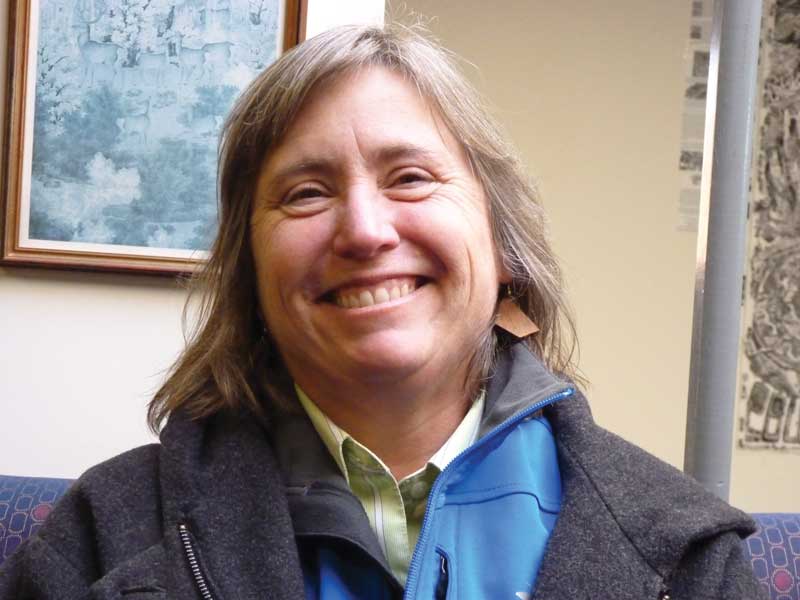Academic coaching: a two-way street
Martha Lance
Academic Support Services provides resources to students such as equipment necessary for classes, and services such as advising and note-taking.
One service, formerly known as “tutoring,” is changing.
Now it’s called “academic coaching,” a holistic approach to assessing the learning needs of
individual students. Academic coaches have a wider approach than just focusing on one subject: they aim to help each learner achieve widespread academic success.
These coaches say their goal is to move away from “academic triage”—to establish academic coaching as a pro-active tool for sustained success rather than a reactive fix for emergencies.
“It’s about looking at what’s going on inside the learner’s head,” said Martha Lance, the Learning Resource Coordinator in Academic Support, “considering all the different factors that influence this person’s learning.”
Lance’s work in Academic Support and with the TRiO program here at JSC has changed her perspectives on student needs. She believes factors like an individual’s learning style, a person’s sources of support in the community and at home, previous experiences in learning, and the individual’s perception of self all shape the struggle with coursework.
To effectively address these factors and meet needs, Lance began to mold tutoring into academic coaching, and that process continues.
Assisting Martha this semester is intern Kaleigh Szymanowski, a Liberal Arts senior with concentrations in Health and Wellness, Psychology, and Dance.
“Every learner is unique,” explained Szymanowski, “and academic coaching will provide services tutoring did not.”
Szymanowski obtains the resources that are provided to coaches and learners. These include tools to apply information regarding learning styles, materials to educate about stress management, and various support projects surrounding learner motivation.
Additionally, Szymanowski is exploring resources to address the physical well-being of learners, such as information about nutrition and sleep.
“I’m very excited about this work,” said Szymanowski. She intends to apply these skills to future work as a wellness coach.
Lance emphasizes that the efforts of the academic coaches significantly affect the program’s success. Besides demonstrating academic prowess and earning faculty recommendations, coaches are leaders involved in other activities around campus. Lance provides a number of training sessions throughout the academic year, ranging from sessions on proper documentation, establishing attainable session goals, and understanding the role of a coach within JSC’s academic code of conduct.
“We are not here to do anybody’s work for them,” Lance clarified. “It’s not fair to the coaches or professors when the student does not take responsibility for the learning.”
For Dalton Gomez, a third-year veteran, coaching is a “two-way street.”
Gomez primarily coaches science and math, two of the most requested subjects. In his experience, the coach gains as much as the learner.
“You don’t truly understand something until you can teach it to someone else,” he said, explaining that by helping others to understand course content his own comprehension of material has improved.
By offering resources that extend beyond course content, he believes academic coaching will create expert learners, students who will have skills and tools to teach themselves.
“It’s serious work,” Gomez said. “And we strive be professional.”
Academic coaching is free to all undergraduates. There are four professional coaches and over 20 peer coaches, offering assistance in most disciplines.
Along with weekly scheduled sessions, there are drop-in sessions in each residence hall. For more information visit Academic Support in Dewey 114, or e-mail [email protected].
Mariah Howland joined the Basement Medicine staff in fall 2011 and has served in a variety of capacities since then, most recently as photo editor in...



